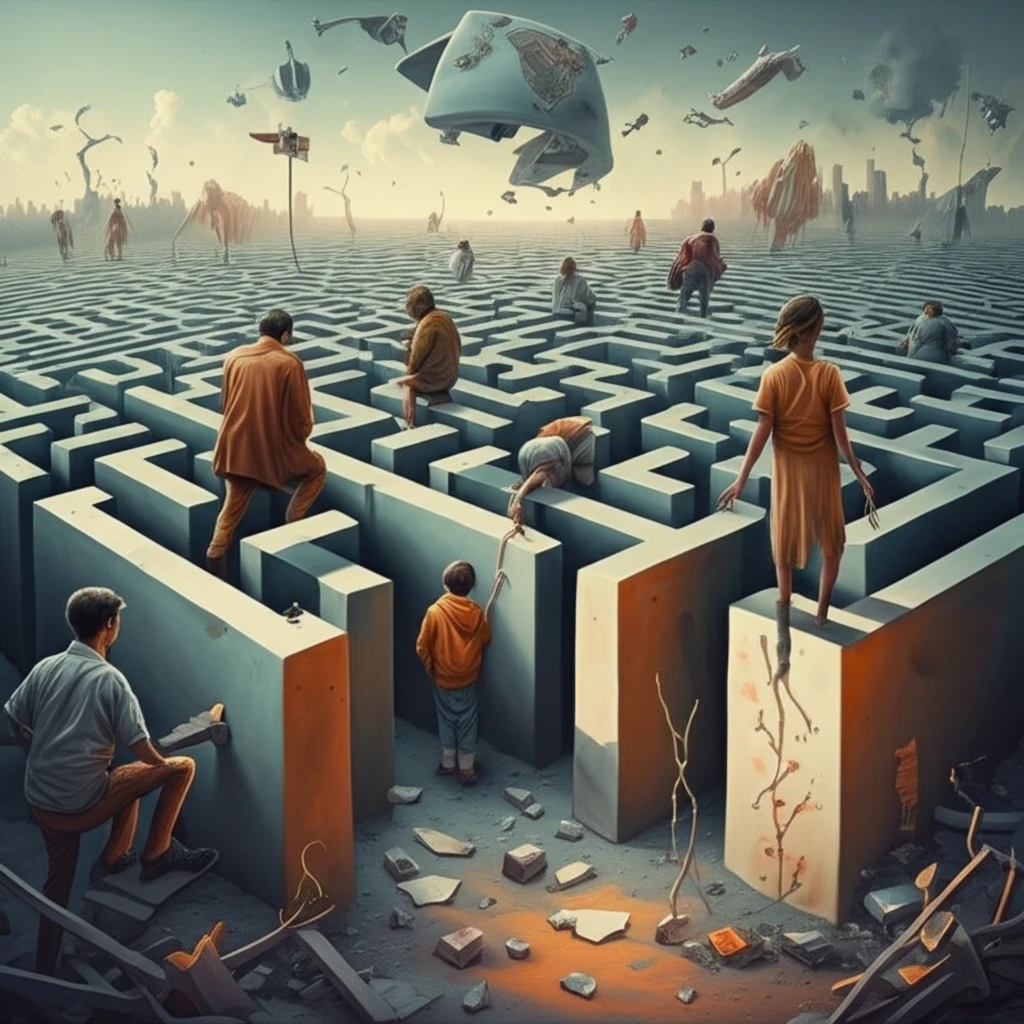
Unveiling Hidden Power: How Social Ties Shape Inequality and What We Can Do About It
"Discover the surprising ways social connections influence economic and social disparities, and explore strategies for a more equitable world."
In today's world, discussions about inequality often focus on income gaps, systemic biases, and access to resources. While these factors are undeniably important, they represent only part of a much larger and more intricate picture. Inequality, in its most durable forms, is often subtly woven into the very fabric of our social connections, influencing who gets ahead and who gets left behind.
Renowned sociologist Charles Tilly, in his seminal work, 'Identities, Boundaries, and Social Ties,' challenges us to look beyond conventional explanations and consider the profound impact of social relationships on the creation and perpetuation of inequality. According to Tilly, these connections, often subtle and unseen, play a pivotal role in shaping opportunities, access, and ultimately, life outcomes.
This article seeks to unpack Tilly's insights, exploring how seemingly innocuous social ties can inadvertently reinforce disparities and what concrete steps we can take to disrupt these patterns and foster a more equitable society. By understanding the relational origins of inequality, we can begin to build a world where everyone has a fair chance to thrive.
The Maze of Inequality: How Our Connections Limit and Define Us

Imagine a maze where some people have maps and compasses, while others wander aimlessly, facing dead ends at every turn. This is the reality of inequality, where social connections act as pathways, guiding some towards opportunities while simultaneously restricting access for others. Tilly argues that this isn't simply a matter of individual merit or talent, but rather a consequence of the social networks to which we belong.
- Exploitation: When one group controls a valuable resource and extracts benefits from others' efforts while denying them the full value of their contribution.
- Opportunity Hoarding: When members of a group limit access to valuable resources, skills, or opportunities to their own members, excluding others.
- Emulation: The tendency to copy successful organizational models, even if they perpetuate existing inequalities.
- Adaptation: The ongoing adjustments and accommodations that individuals and groups make to unequal circumstances, often reinforcing those inequalities over time.
Breaking Down the Walls: Building a More Equitable Future
Tilly's work serves as a powerful reminder that inequality is not solely an economic or political issue; it is fundamentally a relational one. By recognizing the subtle ways social connections shape our destinies, we can begin to dismantle the structures that perpetuate disparity. This requires a conscious effort to diversify our networks, challenge discriminatory practices, and create opportunities for those who have been historically marginalized. Ultimately, building a more equitable future demands a commitment to fostering inclusive social ties that empower all members of society.
